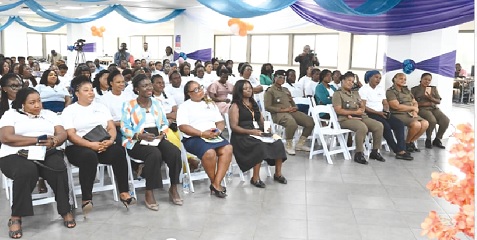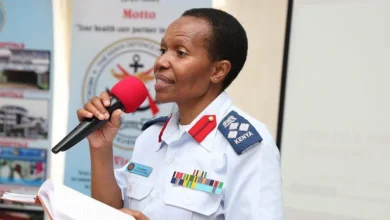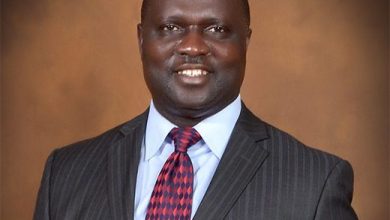News
Women urged to take frontline roles in maritime industry

Women have been encouraged to pursue a career in the maritime industry to help bridge the gender gap in the sector.
Historically, a male-dominated venture, the maritime industry has made progress towards a more equitable workforce, however, the gap is still wide with the International Transport Workers Federation estimating that only two per cent of the world’s maritime workforce is made up of women.
However, those statistics could be improved by having more women come on board to pursue careers in all aspects of the maritime industry.
The General Manager for Marketing and Corporate Affairs of the Ghana Ports and Harbours Authority (GPHA), Esther Gyebi-Donkor, speaking at a coaching session advised women in the sector not to be confined to administrative roles but rather build capacity and pursue other experiences in the frontline of maritime industry operations.
The coaching session, organised by the Ghana Chapter of the Network of Professional Women in the Maritime and Port Sectors of West and Central Africa (NPWMPS-WCA), took place in Tema last Wednesday.
The objective of the coaching session was to propel women in the GPHA to take proactive steps to realise their maximum potential.
Experience, build capacity
Mrs Gyebi-Donkor admonished the leadership of the Network to arrange for short stints and attachment programmes with the operations department of the authority to give women the opportunity to understand the core functions of the port so they could apply to the various departments to be efficient and effective.
Relying on her over 30 years of experience in the sector, Mrs Gyebi-Donkor advised young ladies who were fortunate to be in the maritime industry not to relent in their quest to earn a place in the industry.
She encouraged participants to build resilience, work hard and make concerted efforts to build their capacity to take up roles, including leadership positions on their career path.
The President of the Network, Abena Serwah Opoku-Fosu, expressed the hope that the insights, knowledge and skills acquired from the programme would positively impact participants’ career development and potential within the organisations.
“We have come far as women in the maritime sector and today we even have a female director of port. We have a lot of women in top management positions,” she said
Mrs Opoku-Fosu said in terms of percentages, the number of women in the organisation had gone up to between 18 to 20 per cent and was optimistic that within the next four to five years, and with the interest shown by women to build capacity, more women would rise to the top and produce a first female Director General for the authority.
Source:Fiilafmonline/DailyGraphic



